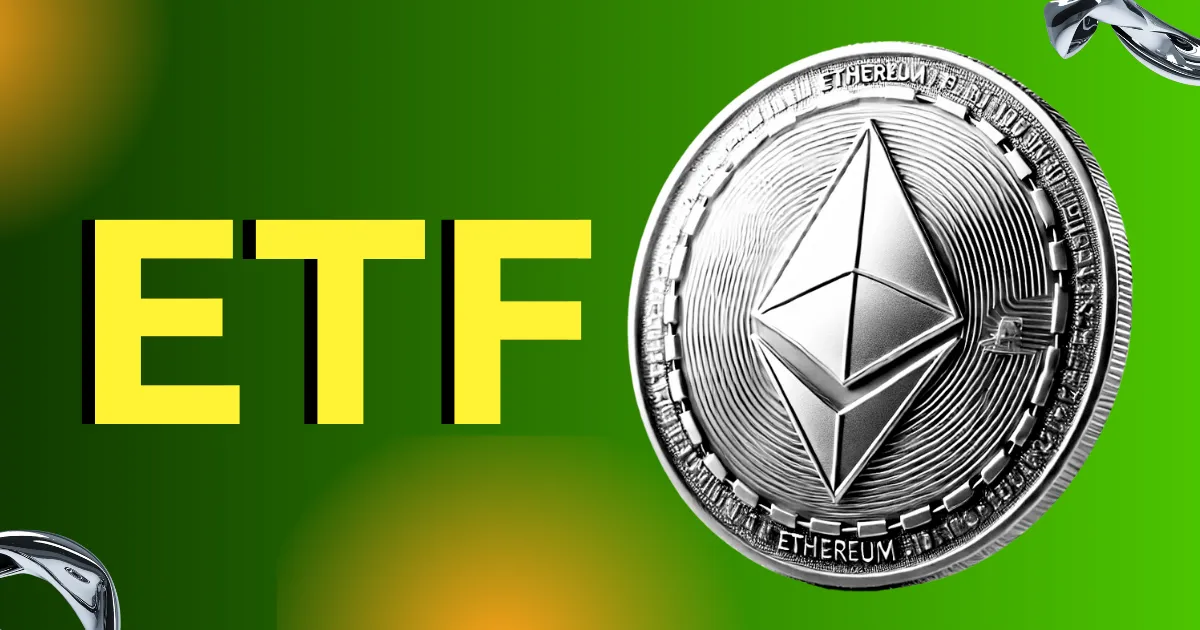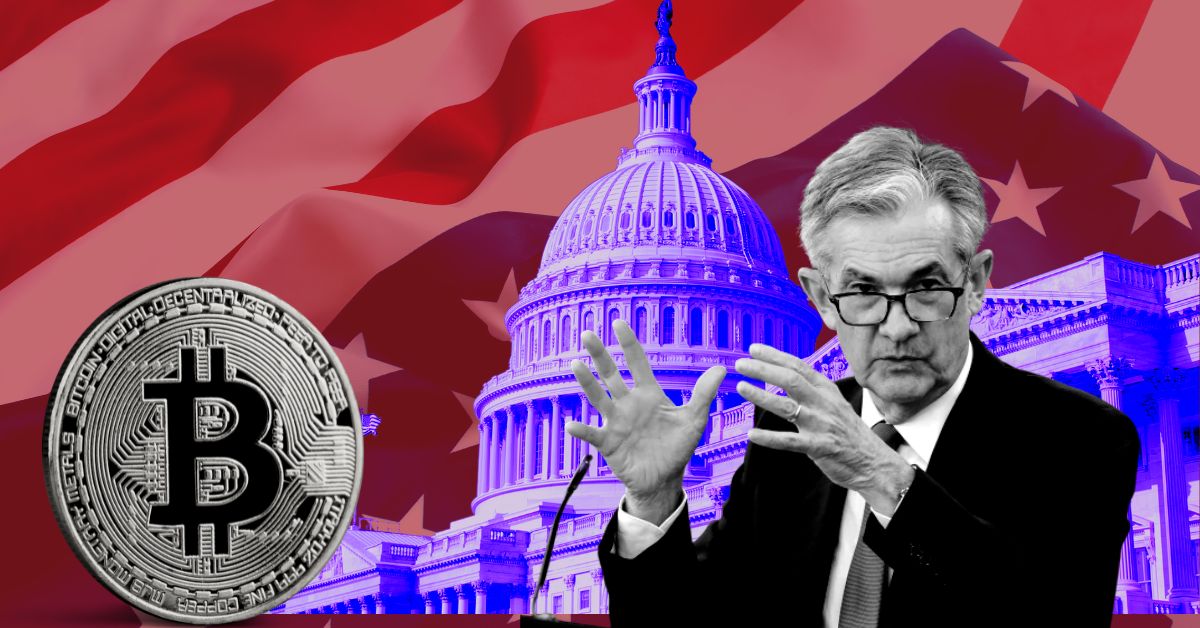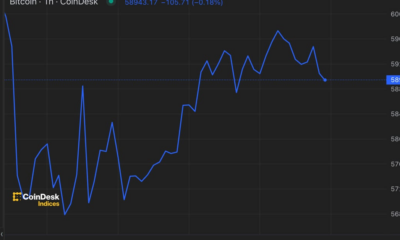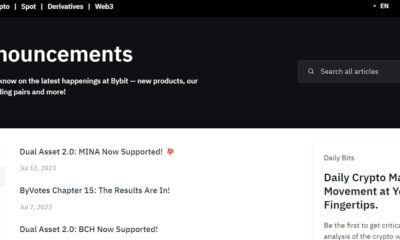Ethereum
Ethereum ETF Approval: Here’s What You Need to Know About Today’s Deadline

The chances of approval increased from 25% last week to 75%.
There is a question that is at the center of the crypto industry today: will Ethereum spot ETFs be approved?
Today, May 23, is a key date for the Ethereum Spot Exchange Traded Fund (ETF) approval process as the U.S. Securities and Exchange Commission (SEC) prepares to rule on VanEck’s Ethereum spot ETF application, the first of several similar applications.
It is expected that if the US securities regulator approves the VanEck product, it will approve the other petitions. It can even approve them all at once, as the agency did with Bitcoin products.
Investors expect that Ethereum spot ETFs will open the floodgates to billions of dollars of inflows from institutional investors, which has pushed the price of ETH to rally more than 27% last week, before the decision.
However, even if approved, it does not mean that Ethereum ETFs will begin trading immediately.
According to Bloomberg Intelligence analyst James Seyffart, “There are many misconceptions that “approvals” mean the immediate launch of Ethereum ETFs. This is not necessarily the case. There will be days (at a minimum), probably at least weeks, and potentially months between approval and launch here.
ETF Approval Steps
Before Ethereum ETFs begin trading, the SEC must approve two forms filed by applicants, 19b-4 and S-1.
Form S-1 is a registration statement used by companies to provide information about their financial condition, risk factors and business operations, before making it public. In contrast, Form 19b-4 is specifically designed for approval of rule changes by self-regulatory organizations (SROs) such as exchanges.
“With respect to ETFs, Form 19b-4 is used to propose and detail the specific structure, mechanics and operational guidelines of the ETF, which directly impacts SEC approval of trading of the product on an exchange,” Asset Insight Partners said. senior analyst James Fabien. “While the S-1 is indeed crucial for transparency and investor protection, it often serves more as a compliance formality. »
Without an approved Form 19b-4, the ETF cannot be launched, regardless of the information provided in the S-1.
The SEC is not making its decision on Form 19b-4 until today, while Form S-1 may take longer. If both forms are approved, ETF applicants can continue their offering and listing process.
ETH ETF Trading Calendar
Even with SEC approval, launching an ETH ETF could take weeks or months due to additional regulatory measures.
Crypto and ETF analyst Michael Van de Poppe, CEO of MN Trading, suggested a longer time frame for Ethereum ETFs. He said: “It is more likely that it will take 2-3 months for the approval of the Ethereum ETF to take place. »
Until last week, Bloomberg Intelligence analysts estimated the chances of an Ethereum ETF being approved at 25%. This week, however, they increase chances at 75%
Van de Poppe told The Defiant: “The chances of getting approval have increased, however, the likelihood of approval within 24 hours seems strange and almost impossible to establish. »
Reasons Behind Higher Ratings
Several factors contributed to the Ethereum ETF’s higher chances of approval. A notable reason, according to analysts, was former President Donald Trump’s endorsement of crypto as part of his political campaign. Additionally, two key crypto bills, HJ Res. Act 109 and the Financial Innovation and Technology for the 21st Century (FIT21) Act have garnered bipartisan support, signaling a shift in lawmakers’ attitudes toward cryptocurrency.
Jake Chervinsky, General Counsel, Variant Fund believes that the approval could be influenced by politics, and “crypto has been winning the political battle for months.” Chervinsky speculated that “the Biden camp saw how many voters Trump could win over with just one pro-crypto comment and decided to pivot.”
Daniel Enright, head of ecosystem at LightLink, also cited the chances of approval of the Ethereum ETF to increase under political pressure. “If this is now a political and electoral issue, there will be enormous pressure to get this approval. »
Looking ahead, Van de Poppe believes that the next few months could serve as a preparatory period. “Following these delays, the summer could be a period of preparation towards the approval of the Ethereum ETF.”
In terms of approval probabilities, he added: “I estimate there is a 70-80% chance of approval within 2-3 months, and around 10-20% chance in the next few days. »
Remove the last obstacles
In recent days, ETF applicants have been revise their applications, making changes that may create obstacles to product approval. One major change is the removal of staking from ETH services.
Nasdaq submitted an updated Form 19b-4 for BlackRock’s iShares Spot Ethereum ETF on Wednesday, just a day after the CBOE submitted amended forms for ETFs offered by Franklin Templeton, Fidelity, VanEck and Invesco Galaxy . These amendments specifically removed staking rewards, a process by which investors lock up their Ether to help secure the network and validate blockchain transactions in exchange for rewards.
According to analysts, removing staking from the filing eliminates the possibility that if the SEC classifies ETH as a security, it would hinder the approval of Ethereum ETFs.
Financial lawyer Scott Johnsson said the removal of staking was to be expected. “The most important signal here is that there is no change in the trust structure and disclosures provided by commodity licensors. All signs point to the SEC laying out its case for ETH as guarantee.”
But there is a glimmer of hope.
Fabien explained to The Defiant that avoiding staking could be beneficial for Ethereum. “One of the major risks for ETH is the high percentage of its supply staked on platforms like Lido, Coinbase and others. With the SEC potentially banning staking, it is likely that institutional demand will increase. will move towards holding simple ETH instead of staked ETH.”
Fabien added that this could “help reduce risks associated with a concentrated supply of staked ETH, such as vulnerabilities to consensus exploits.”
If ETF applications are rejected, applicants have two options, Ryan Lee, chief analyst at Bitget Research, told the Defiant. “First, they can reapply and try to correct the reasons the SEC gave for denying the application. Second, they can seek relief in court, a move that worked well when Grayscale Investments took the market regulator to court.
Next, Solana ETFs?
According to Enright, once initial approval of crypto assets beyond Bitcoin ETFs occurs, it could pave the way for other cryptocurrencies to gain similar recognition.
He said: “Once Pandora’s box of legitimizing crypto assets beyond BTC has been opened, we could then see leaders in other sectors of the crypto market being recognized.” This recognition could extend to cryptocurrencies such as “…Solana, Chainlink ETF”.
However, Nate Geraci, president of The ETF Store, has a different view. He believes that the existence of a Solana spot ETF is quota according to specific prerequisites.
“A Solana spot ETF will not exist until a Solana futures product traded on the Chicago Mercantile Exchange is listed or Congress establishes a legitimate cryptocurrency regulatory framework. “
Nonetheless, Cinneamhain Ventures partner Adam Cochran said that instead of Solana, other cryptocurrencies could be next to be included in a spot ETF. Cochran tweeted“I think you get LTC and DOGE first. Much lower demand, but cleaner paths.”
Ethereum
Crypto Token Ether (ETH) Rebounds Following Complaint About SEC Investigation Into Ethereum

The Ether token posted its best gain this week amid speculation that U.S. regulatory oversight of the blockchain ecosystem underlying the second-largest digital asset could ease.
The token climbed as much as 3.6% on Wednesday before paring some of its advance to trade at $3,562 as of 12:53 p.m. in Singapore. The rally was a modest tailwind for market leader Bitcoin and a string of smaller rivals.
Ethereum
Will they capture the same buzz in the market?

The launch of Ethereum spot exchange traded funds Exchange traded funds (ETFs) attracted significant market interest on July 23, with initial inflows surpassing $100 million. This is a notable change from the previous four days of outflows for U.S. spot Ether ETFs, which saw a total of $33.67 million in new investments.
This figure was, however, partly offset by an outflow of $120.28 million from Grayscale’s Ethereum Trust (ETHE). However, many crypto analysts believe that the Ethereum ETF will soon follow bitcoin’s path.
Ethereum ETF to Track Bitcoin
Katalin Tischhauser, head of investment research at Sygnum Bank and a former Goldman Sachs executive, predicted that Spot Ether exchange-traded funds could attract as much as $10 billion in assets under management in their first year.
She also predicted that Bitcoin ETFs could see inflows of $30 billion to $50 billion in their first 12 months, with Ethereum products likely following the same path.
Tischhauser noted that investing in Ethereum offers distinct advantages over Bitcoin. While Bitcoin is primarily viewed as a store of value, Ethereum’s value comes from revenue and cash flow. This makes Ether more relevant to traditional institutional investors compared to the perception of Bitcoin as “digital gold.”
Fee waivers to attract institutional investors
To attract institutional investors, several ETF issuers are waiving fees for their Ethereum spot funds. Franklin Templeton announced a 0.19% sponsorship fee, but will waive it for the first $10 billion in assets for six months. Meanwhile, Bitwise and VanEck will charge a 0.20% fee through 2025.
BlackRock revised its registration statement for its spot Ethereum ETF, ETHA, to include a 0.25% management fee. Grayscale launched its Grayscale Ethereum Mini Trust with the same 0.25% fee.
Ethereum ETFs Exclude Staking
The enthusiasm is, however, tempered by the lack of staking rewards of these ETFs. In May, BlackRock, Grayscale and Bitwise removed staking provisions from their SEC filings after discussions with the SEC.
As traditional investment institutions are limited by regulations and legal constraints, they can only invest through ETFs, without resorting to staking.
Also see: Crypto News Today: Bitcoin, Ethereum Brace for Volatility as Fed Holds Rates
Ethereum
SEC Hints It May Approve Ethereum ETFs at Last Minute, But ‘No Issuers Are Ready’

It sounded like an almost certain rejection from the Securities and Exchange Commissionbut just hours before the May 23 deadline to rule on VanEck’s application to launch an Ethereum spot exchange traded fundIt appears that the SEC may reconsider its decision.
CoinDesk First reported On Monday, the nine potential issuers that had filed to list and trade the ETFs were “abruptly” asked by regulators to update their 19b-4 filings on an expedited basis. A 19b-4 is what an exchange like the NYSE requires for new product introductions — in other words, the applicants and the exchange ask the SEC for permission to add the ETFs to their platforms.
Since rumors began circulating Monday afternoon, the price of Ether has climbed nearly 20%, trading near $3,750 as of 1:30 p.m. ET Tuesday.
It’s hard to believe that the SEC would do us a favor by approving the ETH spot ETF.
But politics is politics, and crypto has been winning the political battle for months.
Perhaps the Biden camp saw how many voters Trump could win over with a single pro-crypto comment and decided to change course.
— Jake Chervinsky (@jchervinsky) May 21, 2024
Since VanEck is the first exchange to file, its approval could hypothetically be a green light for others waiting to hear about their own 19b-4s. While rumors began circulating Monday that applications were being worked on, Bloomberg analysts updated their ratings from 25% to 75% approval.
But the news left issuers scratching their heads. Every issuer Bloomberg ETF analyst James Seyffart spoke to was “caught off guard by the SEC’s 180-degree turn,” he told Fortune. The agency reached out to filers for comment and updates just three days before the deadline, he said.
“This is not standard operating procedure, and everyone from issuers to exchanges to lawyers to market makers and more are scrambling to be ready for eventual approval and to meet SEC requirements,” Seyffart adds. The hasty nature of the pivot suggests it was likely a “political move,” the result of a “top-down decision” by the Biden administration, he speculates. “No issuer is ready,” he wrote on X.
It’s hard to believe that the SEC would do us a favor by approving the ETH spot ETF.
But politics is politics, and crypto has been winning the political battle for months.
Perhaps the Biden camp saw how many voters Trump could win over with a single pro-crypto comment and decided to change course.
— Jake Chervinsky (@jchervinsky) May 21, 2024
So far, Grayscale is the only potential issuer to post an update 19b-4 to the New York Stock Exchange website, for its application to transfer its Ethereum Mini Trust ETF. Meanwhile, Fidelity has abandoned its plan to put Ether in its ETF, according to a S-1 Update The filing was made with the SEC early Tuesday. In previous filings, the company had said it intended to “stake a portion of the trust assets” to “one or more” infrastructure providers, but now it “will not stake Ether” stored with the custodian.
Staking involves committing Ether to secure the network in exchange for a yield, which is currently around 3%, according to data from staking service Lido. Ark and Franklin Templeton have also considered staking in their applications. In today’s 19b-4 update from Grayscale, the company confirmed that it would not participate in staking. The fact that Grayscale highlighted this and Fidelity omitted it suggests that the SEC may have asked that staking be banned. Vance Spencer, co-founder of Business executivestold Fortune he believed the SEC’s last-minute requests included advice on staking.
Staking the underlying Ether in the ETF has been seen as a reason the SEC could reject the applications, with Chairman Gary Gensler expressing concern in March that digital assets using staking protocols could be considered securities under federal law. Staking could be “a significant complication,” Bitwise CIO Matt Hougan said. previously said Fortune.
However, even if the SEC approves VanEck’s 19b-4 on Thursday, it doesn’t guarantee clearance, as exchanges will need S-1 filings from issuers before the products can begin trading. When filing to launch a new security, an S-1 is the form that describes to potential investors and the SEC the structure of the asset, how it will be managed and, in this case, how it plans to mirror the performance of the underlying asset, namely Ether tokens.
But S-1 projects could take “weeks, if not months” to be approved, Seyffart said. written on X“That said, if we are correct and see these theoretical approvals later this week, that should mean that S-1 approvals are a matter of ‘when’ and not ‘if.’”
Recommended newsletter:
CEO Daily provides essential context for the information business leaders need to know. Every weekday morning, more than 125,000 readers trust CEO Daily for insights into leaders and their businesses. Subscribe now.
Fuente
Ethereum
FOMC Holds Interest Rates Steady, Bitcoin and Ethereum Prices Fall

After Federal Reserve Chairman Jerome Powell said a September rate cut “could be on the cards,” stocks soared to session highs. The tech-heavy Nasdaq 100 climbed 3.3% and the S&P 500 climbed 2%. However, the king cryptocurrency Bitcoin (BTC) fell 1.3% to $66,088, and Ethereum (ETH) fell about 1.11% to $3,313. Over the past 24 hours, the global cryptocurrency market cap also fell 0.71% to $2.39 trillion.
However, market analysts believe that this is a short-term decline, as Bitcoin and other cryptocurrencies, despite being in a bearish situation, are showing bullish signals. Although BTC is still struggling to break the $70,000 mark, it will be interesting to see how BTC will react in August before the rate cuts.
Federal Reserve Decision
On July 31, the U.S. Federal Reserve concluded a two-day meeting of the Federal Open Market Committee (FOMC) by choosing to keep benchmark interest rates unchanged at 5.25%-5.50%, in line with Wall Street expectations. The decision marked the eighth consecutive meeting without a rate change.
Towards a market rebound?
According to SantimentThe FOMC’s decision to maintain current interest rates led to an initial decline in cryptocurrency prices. Traders were hoping for a rate cut, which hasn’t happened since March 2020. A future rate cut could signal bullish trends for stocks and cryptocurrencies, potentially boosting markets for the remainder of 2024. Despite the initial sell-off, markets are likely to stabilize unless another major event impacts the cryptocurrency sector.
In the meantime, aggressive accumulation by bulls and increasing negative sentiment among the crowd could set the stage for a substantial market rebound.
Understanding the broader impact
Despite the anticipation surrounding the FOMC meeting, the impact on cryptocurrencies was limited as the pause on rates had already been factored into prices. Previous Fed decisions have shown minimal major impact on Bitcoin prices.
Historically, FOMC actions affect all asset classes. In 2020 and 2021, Bitcoin and other altcoins soared when the Fed cut rates to zero, only to reverse course in 2022 when rates began to rise. Investors moved trillions of dollars into lower-risk assets, with money market funds amassing over $6.1 trillion, earning an average return of 5%.
Furthermore, Bitcoin’s immediate resistance is noted at $66,852, with support at $65,000. The RSI is signaling oversold conditions, suggesting further declines are possible if the price falls below $65,900.
Investors are now closely watching the FOMC meeting for clues about inflation and economic growth, which could influence Bitcoin’s next move.
-

 News12 months ago
News12 months agoBitcoin (BTC) price recovery faces test on non-farm payrolls
-

 News11 months ago
News11 months ago11 Best Shitcoins to Buy in 2024: The Full List
-

 Bitcoin9 months ago
Bitcoin9 months ago1 Top Cryptocurrency That Could Surge Over 4,300%, According to This Wall Street Firm
-

 News11 months ago
News11 months agoNew ByBit Listings for 2024: 10 Potential Listings
-

 Altcoins9 months ago
Altcoins9 months agoOn-chain data confirms whales are preparing for altcoin surge with increased buy orders
-

 Bitcoin9 months ago
Bitcoin9 months agoThe US government may start accumulating Bitcoin, but how and why?
-

 Ethereum11 months ago
Ethereum11 months agoTop Meme Coins by Market Capitalization in 2024
-

 News11 months ago
News11 months ago11 Best Crypto TikTok Accounts & Influencers in 2024
-

 News11 months ago
News11 months ago19 Best Crypto Games to Play in 2024
-

 Altcoins11 months ago
Altcoins11 months agoAltcoin Recommended by Crypto Expert for Today’s Portfolio
-

 News10 months ago
News10 months ago1.08 Trillion SHIBs Dumped on Major Crypto Exchange, What’s Going On?
-

 Ethereum9 months ago
Ethereum9 months agoCardano Founder Hints at ADA ETF Amid Ethereum Launch Excitement





